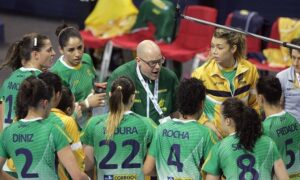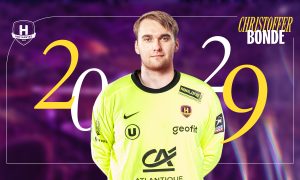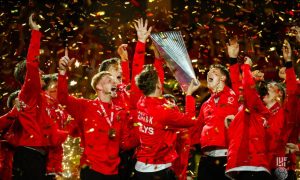One of the best handball summer events in Europe, International Goalkeeper’s Camp in Makarska and Tucepi, Croatia, will start on June 18 with the numerous guests and participants from all part of Europe. Relationship between coaches, TOP goalkeepers’s names and young goalkeepers is something which made from event at beautiful Croatian coast, unforgetable experience. Omeyer, Hvidt, Alilovic, Sego, Blazicko, Basic and the other well-known names from the TOP handball were coaches in Camp last three years and many of them will be there this summer also. One of them, who will give another dimension to the whole story is Norwegian mental coach Karina Andersen Aas:
– I think that the international goalkeeper’s camp in Croatia is a really good and important concept. From my experience as a handball coach in Norway I have learned that many goalkeepers don’t get the attention and feedback they need to develop. I don’t know if this is a trend also in other countries, but we all know that the goalkeeper’s position is really important in handball. This camp gives young goalies the possibility to focus only on their role, learn from the best and meet other athletes that love being goalkeepers – said Karina and added:
– My expectations regarding the camp are that there will be many young goalies wanting to develop, get better and that eager to learn new things. I expect professional instructors that are eager to share their experiences. And of course I expect the whole camp to be professional. I think that implementing mental training is important for all athletes in all kind of sports. I work both with athletes at professional level and with teenagers and in both categories the mental part matters a lot. Peak performances demands both physical and mental skills. When I ask athletes how much time they spend om practicing mental skills and compare the answers to how important they think the mental skills is to perform and achieve success, I see a huge mismatch. Athletes experience that their performance is affected by psychological factors to a large extent, but they don’t have the tools and knowledge how to affect themselves in a positive and constructive way – said Andersen Aas and explained further:
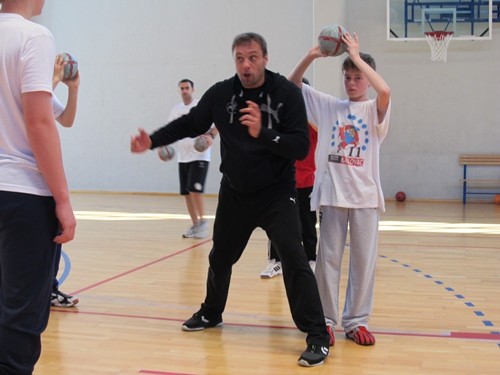 – Mental strength is about being able to: manage stress, handle challenges, being confident, having a positive inner dialogue, turning adversityinto success, see the positive in every situation, being focused and concentrated, getting the best out of every situation, regulate ones thoughts and emotions, being disciplined and committed. The mental strong athletes manage to cope with distractions and to respond to situations in a positive and constructive way. This is what separates the best athletes from the second best. Mental training is an essential tool for developing psychological skills so that the athletes can best utilize their natural resources and potential. The goalies can in the lecture learn easy and effective techniques and methods that they can use to develop their mental strength.
– Mental strength is about being able to: manage stress, handle challenges, being confident, having a positive inner dialogue, turning adversityinto success, see the positive in every situation, being focused and concentrated, getting the best out of every situation, regulate ones thoughts and emotions, being disciplined and committed. The mental strong athletes manage to cope with distractions and to respond to situations in a positive and constructive way. This is what separates the best athletes from the second best. Mental training is an essential tool for developing psychological skills so that the athletes can best utilize their natural resources and potential. The goalies can in the lecture learn easy and effective techniques and methods that they can use to develop their mental strength.
Norwegian coach believes in importance of mental coaching…
Mental coaching in handball goalkeeping is really important because goalkeeping is definitely a mental game. Therefore developing the psyche of the goalkeeper is as equally important as the physical aspects of the position. Goalkeeping differs from the other positions by moments of high-stress situations mixed with moments of very little activity near goal. Being able to “stay in the game” is therefore a crucial competence for goalkeepers. Dealing with distractions is something all goaltenders desiring success must become comfortable with. Distractions can both be external and internal. External distractions encompass all things outside the athlete’s mind to which goalkeepers may be exposed to. Internal distractions are even more challenging and originate from within the goalkeeper’s own mind. These can include negative thought patterns, dealing with unrealistic expectations of oneself and others, or thinking about results rather than what is immediately at hand. The distractions affect the goalkeeper’s performance by drawing focus away from those steps required to stopping the ball. Being able to deal with distractions is possible to learn through mental training – said Karina and concluded:
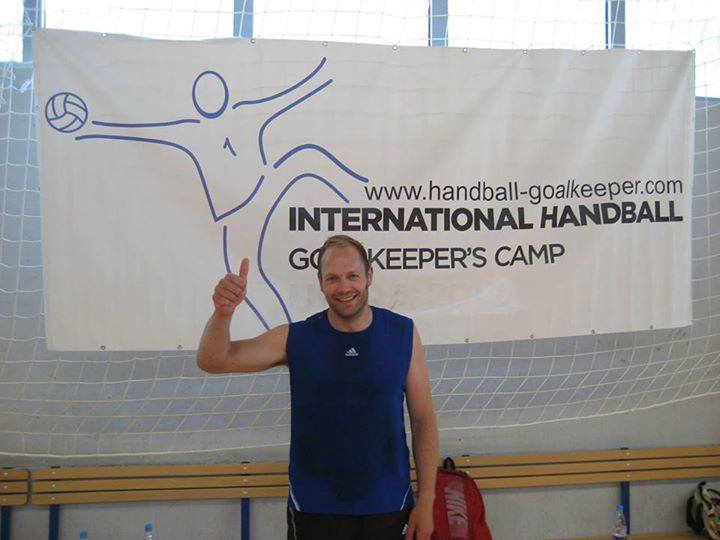 – Especially after letting in easy goals or after failures, the periods with little activity are critical for the goalkeeper’s performance. How the goalie handle this and what he thinks about oneself or the situation decides how his or her next intervention will be. Dealing with this in a negative manner can lead to loosing focus and concentration. All research shows that negativity is not a good predictor of successful outcome. Therefore goalkeeper must learn to deal with letting goals in and not to see them as failures during the game. It is all about training one selves to handle failure in a positive and constructive way. Each ball must be a new one, regardless of what happened before. A good investment for the goalkeeper is therefore to develop a mental refocus plan as part of the mental training and preparation. This mental refocus plan helps the athlete to re-set oneself by for example using personally selected positive self-talk words or short phrases. Together with a mental coach the goalkeeper can find and develop good strategies to regain focus. For goalkeepers confidence is really important. If you can believe it, you can definitely do it! Confidence is something you have to work for. Mental coaching can help the goalkeeper to focus on the right things, practicing positive self – talk and building on strengths – concluded Karina Andersen Aas.
– Especially after letting in easy goals or after failures, the periods with little activity are critical for the goalkeeper’s performance. How the goalie handle this and what he thinks about oneself or the situation decides how his or her next intervention will be. Dealing with this in a negative manner can lead to loosing focus and concentration. All research shows that negativity is not a good predictor of successful outcome. Therefore goalkeeper must learn to deal with letting goals in and not to see them as failures during the game. It is all about training one selves to handle failure in a positive and constructive way. Each ball must be a new one, regardless of what happened before. A good investment for the goalkeeper is therefore to develop a mental refocus plan as part of the mental training and preparation. This mental refocus plan helps the athlete to re-set oneself by for example using personally selected positive self-talk words or short phrases. Together with a mental coach the goalkeeper can find and develop good strategies to regain focus. For goalkeepers confidence is really important. If you can believe it, you can definitely do it! Confidence is something you have to work for. Mental coaching can help the goalkeeper to focus on the right things, practicing positive self – talk and building on strengths – concluded Karina Andersen Aas.




